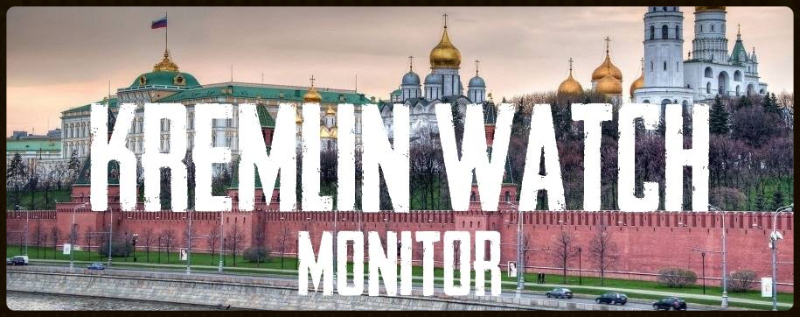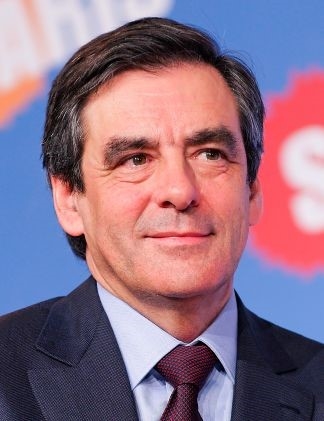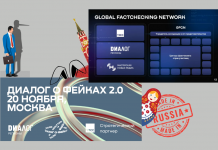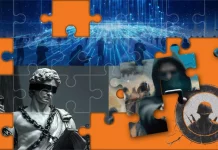
New Publications
The Visegrad Insight published an article written by our Jakub Janda. He explains the threat Russia constitutes for the states of the Visegrad group and warns that “it is only a matter of choice whether Central Europe will remain a part of the democratic West, or if some countries will move towards the direction of those states already deeply penetrated by Russian influence.”
He also contributed to Observer with a commentary summarising what would the United States and the West lose if Donald Trump decided to make a deal with Vladimir Putin – “state sovereignty, the right of any nation to choose its own path despite the wishes of its bigger neighbour, and freedom of speech.”
According to his article, there are 4 things Vladimir Putin wants right now:
- The Western sanctions against Russia to be lifted as soon as possible.
- New Yalta agreement, guaranteeing and acknowledging Russian zone of influence.
- The West to stop supporting democratic civil society in the Eurasian region.
- To be seen as a historical figure.
Putin’s Champion Award
Our Expert Jury consisting of Jessikka Aro, Anton Shekhovtsov, John Schindler and Michael Weiss voted again last week and picked the second winner.
The 2nd Putin’s Champion Award Recipient Is:
François Fillon
For appeasing Russian aggression and blaming the West which allegedly “provoked” Moscow.

It seems that in this year’s presidential elections, Vladimir Putin is going to have not one, but two Champions as plausible candidates.
Do you think you know just the right persona to receive the next Award? Nominate them via e-mail or via hashtag #PutinChampion
Weekly update on Kremlin disinformation efforts
Czech Ministry of Foreign Affairs hacked
The Czech Ministry of Foreign Affairs suffered a major cyberattack. According to Neovlivni.cz, a Czech investigative outlet, “thousands of files were downloaded from the email inboxes of the Czech Minister of Foreign Affairs and his Undersecretaries” including classified information. The Czech Ministry of Foreign Affairs denied that any classified information has been stolen. Furthermore, Neovlivni.cz reported that the stolen data were related to the Czech allies, NATO and EU members. The Czech Minister of Foreign Affairs Lubomír Zaorálek said, on the Tuesday emergency press conference, that the attack was “very sophisticated” and was probably conducted by “a state-like actor”. He also claimed that the attack was of “similar nature” as the DNC hacks. You can find more detailed information on our website.
It almost seems like the cyberattacks are becoming the new daily routine in Europe. There was another one carried out against the Polish Financial Supervision Authority watchdog and another targeting the Norweigan Ministry of Foreign Affairs, army and other institutions including the Norwegian intelligence service, which suspects that the attacking group has links to Russian authorities.
Meanwhile, the Czech Centre Against Terrorism and Hybrid Threats started monitoring disinformation in the Czech Republic starting with the new year. But, ever since it has launched, it has struggled with disinformation regarding its job description and competences and has been questioned by several high-ranking politicians. You can read more about the Centre and its work in the article published by the BBC, as well as about the challenges the European Values think-tank is dealing with. Even more detailed reports have been broadcasted by the BBC Radio (time 38.45) or by the CNN.
The EEAS StratCom Task Force has warned that Russia seeks to influence the outcome of key European elections; France, Netherlands and Germany being the primary targets. According to the Telegraph, the EU is increasing the amount of finances for the task force to counter the disinformation campaign.
The Dutch tackle these challenges in their own way. After reports about vulnerabilities of the country’s electoral system came out, the Minister of the Interior Ronald Plasterk announced that the votes in the election in March are going to be counted manually, in order to prevent any hacking incidents or discrepancies in the voting process.
Vladimir Putin visited Budapest
The President of the Russian Federation Vladimir Putin visited the Hungarian Prime Minister on Thursday. They talked about energy projects and the Russian President promised to supply Hungary with the gas it needs. The Political Capital, a think-tank residing in Budapest, prepared a flash report, according to which the visit indicates that “there is a strategic alliance between the two sides, which is to strengthen ‘internal opposition‘ within the European Union trying to cancel sanctions against Russia and to weaken European integration.”
The authors of the report highlight 4 most significant points:
- Viktor Orbán confirmed Vladimir Putin’s stance on the Russia-Ukraine war.
- The two leaders made a united stand against sanctions.
- Economically, the two leaders revisited already existing energy deals and regional cooperation agreements.
- The significance of the meeting that extends beyond economic relations is that Viktor Orbán will continue to mimic elements of Putin’s power political toolkit and his ideology.
Euroatlantic experts on disinformation warfare
Nicholas Vincour from Politico provides readers with an insight into Marine Le Pen’s internet campaigners’ trolling and spreading of viral content directed against the other candidates.
Several tips on how to survive Russian disinformation campaign and how to prepare yourself are included in the article published by the Atlantic Council and written by Linda Kinstler.
The Institute for Human Sciences in Vienna hosted a lecture by Anton Shekhovtsov, a Fellow at the Legatum Institute in London. He thoroughly explains the relations between the Kremlin and the Western far right.
Czech Disinformation Corner
The United States: New President Will Save Us All
The central topic of the Czech disinformation media scene was Donald Trump’s inauguration speech and his first act as president. The executive orders to stop migration from several near-Eastern countries and to cease funding the UN were especially warmly welcomed. Several articles commented on Trump’s speech and reactions of his opponents, which were, supposedly, panic-stricken and hateful. George Soros, allegedly supporting protesters and trying to launch impeachment, could not be absent.
Ukraine: The great aggressor
We were reminded by the Czech spreaders of disinformation that Nadiya Savchenko is a murderer and that NATO is occupying the Baltic states. Czech disinformation media outlets covered heavily Avdiivka fighting that outbroke between Ukraine forces and Russia-backed rebels. Protiproud blamed Ukrainian forces for starting the fights and also suggested that Ukrainian army tries to kill and harm as many civilians as possible. It does not matter to them that Avdiivka is and has been under Ukrainian control and that no credible institution is mentioning any intention of Ukrainian forces to harm civilians.
The Middle East: Added in Translation
Czech disinformation website AC24 claimed, based on a video by CNN, that Barack Obama has been supporting “Islamic state” organisation. They based their accusation on a trip made by congresswoman Tulsi Gabbard to Syria. Mrs Gabbard claimed people in Syria are saying that there are no moderate rebels there and that the Syrians are dissatisfied with the US supporting them. AC24 said this is proof that Mrs Gabbard was on a secret trip to uncover Obama’s propaganda and that it proves Obama’s administration supported An Nusra, Al Qaeda and the “Islamic state”.
Kremlin Watch is a strategic program of the European Values Think-Tank, which aims to expose and confront instruments of Russian influence and disinformation operations focused against liberal-democratic system.





